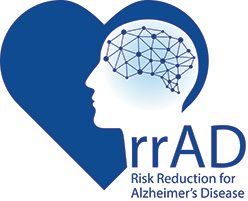News
Reducing Alzheimer’s risk
Are exercise and cholesterol-lowering medication good for the brain?
November 28, 2018
Exercise is prescribed to reduce the risk of a number of chronic health conditions, including obesity, diabetes and cardiovascular disease. Medical researchers at a number of institutions, including Washington University School of Medicine, are studying whether exercise and cholesterol-lowering medication are good for brain health as well. Continue to article.
5 ways to keep your brain sharp and fight off dementia
July 9, 2018
Jennifer Greer first noticed that her mother, Carolyn, had trouble finding words to express herself. Diagnosed with dementia, the 73-year-old now can’t talk or take care of herself. Continue to article.
How Exercise May Help Protect Your Brain From Cognitive Decline and Dementia
February 16, 2018
Older adults with poor fitness levels have more deterioration of white matter in their brains, according to a new study, compared with their fitter peers. White matter deterioration was also linked with a decline in decision-making brain function among adults with early signs of memory loss, suggesting that regular exercise may slow cognitive decline and perhaps even dementia, say the study authors. Continue to article.
Scientists seek North Texans willing to try ‘exercise as medicine’ against Alzheimer’s
December 21, 2017
It’s New Year’s resolution time, and a team of Dallas scientists hopes about 160 seniors interested in getting fit will consider being part of a $15 million study that may also lead to healthier brain function. Continue to article.
Preventing Cognitive Decline and Dementia: A Way Forward
October 2, 2017
In a 2017 report, a committee of the National Academies of Sciences, Engineering, and Medicine evaluated the most rigorous, up-to-date research on how to prevent cognitive decline and dementia, as well as recommended ways to conduct future prevention research.
‘This is a top priority’: Alzheimer’s research growing at Pennington Biomedical Research Center
Alzheimer’s disease was a mystery to Bernard Baudin when his younger sister was diagnosed with the form of dementia while in her 50s.
Baudin, 69, of Metairie, knew the disease caused memory loss, but he didn’t realize the extent to which it kills brain cells and slowly cripples the body along with the mind. Continue to article.
Study links high cholesterol, blood pressure to dementia
April 17, 2017
Medical researchers are finding more evidence that exercising and reducing cholesterol and high blood pressure can protect your brain or even prevent Alzheimer’s or dementia. Neurologist Diana Kerwin from the O’Donnell Brain Institute at UT Southwestern is involved in a clinical trial aimed at finding out more. Continue to article.
Creative Aging Symposium & Art for Alzheimer’s Reception
Arts Council Greater Baton Rouge

The Creative Aging Symposium acknowledges its keynote speaker, Dr. Jeffrey Keller, Ph.D. Dr. Keller is founder and director of the Institute for Dementia Research and Prevention at Pennington Biomedical Research Center. Recognized around the United States as an expert in dementia research, he has published over 180 peer-reviewed articles on the topics of aging and dementia.
Dr. Keller will be speaking at the symposium this Friday, March 24th on Mindfulness, The Arts, and Brain Function: Implications for Dementia Care and Prevention.
Exercise and Low Cholesterol May Prevent Dementia
March 15, 2017
Washington University needs participants for new Alzheimer’s study
March 15, 2017
National study tests theory that exercise, lowering cholesterol can help prevent Alzheimer’s
Oct 25, 2016 – There is plenty of evidence to suggest that what is bad for your cardiovascular system is bad for your brain, but the body is one machine and you cannot separate the heart from the brain. Continue to article.

North Texas Researchers Working On Alzheimer’s Cure
June 29, 2016 – As the nation mourns the passing of legendary basketball coach Pat Summitt, experts say her very public battle with Alzheimer’s continues to raise awareness and therefore support for funding in the fight for a cure. Continue to article.
